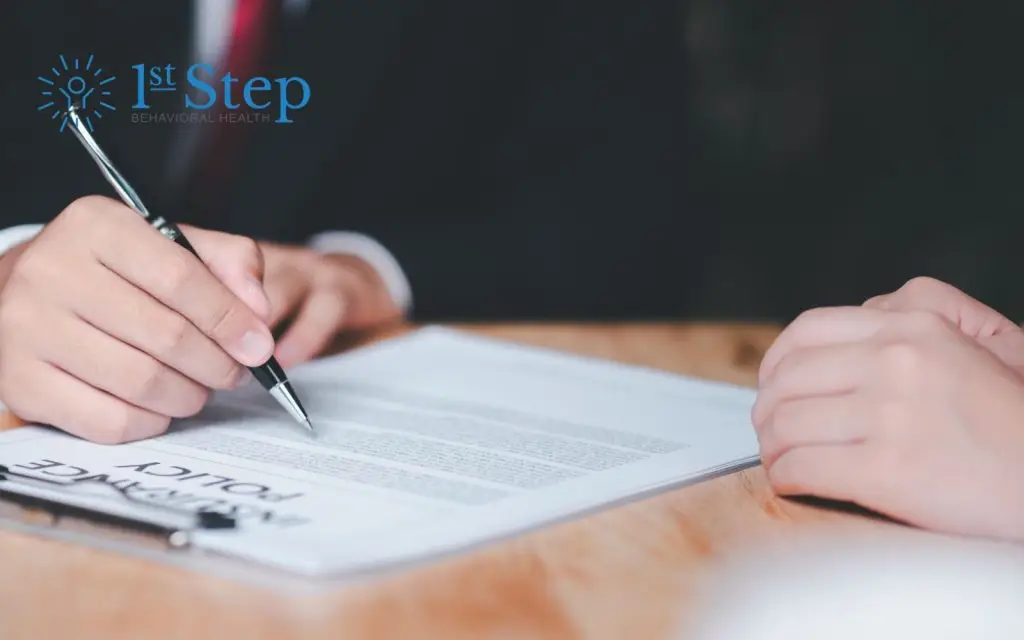Veterans in the United States have access to healthcare through Veterans Affairs (VA). VA benefits may cover the cost of treatment for mental health, substance abuse, and physical health conditions. The VA also provides disability benefits for veterans who become injured or impaired while on duty. These benefits also cover conditions that worsen because of military service.
This article will explore veterans and addiction. You will learn:
- The connection between veterans and substance use disorder (SUD)
- If SUD is a VA disability
- If veterans can use VA benefits for alcohol or drug addiction treatment
- What to expect in addiction treatment for veterans
- Where to find addiction treatment and recovery support
If you or a veteran in your life lives with mental health conditions or SUD, you are not alone. Contact the intake specialists at First Step Behavioral to learn about your treatment options or to schedule an intake appointment.
Veterans and Substance Abuse: Understanding the Connection
Veterans sometimes face unique challenges related to their military service or reintegration. Some of these challenges can cause chronic stress and other symptoms that disrupt daily functioning.
Some of the most common stressors and challenges among veterans include:
- Higher rates of chronic pain
- Traumatic brain injury (TBI)
- Unemployment or underemployment
- Homelessness
- Higher rates of post-traumatic stress disorder (PTSD)
Research suggests that veterans have a slightly higher rate of substance abuse than the general population. Some rates of substance use are declining among this population. However, marijuana abuse among veterans has risen sharply over the past 20 years. Alcohol use has remained high for decades.
Generally, about one in ten veterans struggle with substance use disorder (SUD). Veterans must receive comprehensive treatment to address the roots of SUD, including pain, isolation, mental health challenges, and trauma.
Is Substance Abuse a VA Disability?
The VA recognizes substance use disorder (SUD) as a disability. Veterans who abuse drugs and alcohol may have physical or mental health challenges contributing to their substance abuse. Military service, injuries, and trauma can all contribute to substance abuse and addiction.
Veterans with untreated substance use disorder may face other mental and physical health complications, including depression, higher rates of cancer, relationship and social problems, and more. The VA offers treatment programs to help veterans with SUD address the physical, emotional, and behavioral aspects of their substance abuse.
Comprehensive, compassionate treatment can help veterans safely stop using addictive substances and begin to work toward a healthier, more fulfilling lifestyle.
Can I Use VA Benefits For Drug Rehab?
Many VA centers offer evidence-based treatment programs for substance abuse and co-occurring mental health disorders. Veterans can seek treatment through their VA health care programs. There are many programs for veterans that may include:
- Medical detox programs (medications, emotional support, round-the-clock supervision, and access to treatment)
- Methadone and buprenorphine treatment programs
- Intensive outpatient programs (IOP)
- Residential drug or alcohol abuse treatment programs
- Individual therapy
- Marriage and family therapy
- Support groups
- Mental health treatment
- Relapse prevention education and support
- Specific therapies to treat post-traumatic stress disorder (PTSD), depression, and other mental health conditions
The VA offers rehab and therapy programs in their treatment centers. Former service members can schedule appointments by contacting their local VA office. Veterans may also use private health insurance to seek drug and alcohol addiction treatment.
Addiction Treatment for Veterans
Each veteran has their own unique needs and goals during addiction treatment and recovery. Many types of treatment and several levels of care are available to meet people’s different needs.
Common levels of addiction treatment include:
- Inpatient or residential treatment
- Partial hospitalization programs (PHP)
- Intensive outpatient programs (IOP)
- Medical detox programs
- Outpatient rehab programs
- Recovery support programs
Addiction treatment for veterans may include:
- Medical detox programs (medications, emotional support, supervision, assessments)
- Mental health treatment, including specialized therapies and medications
- Behavioral therapies
- Individual counseling
- Group therapy
- Family and marriage therapy
- Relapse prevention education
- Holistic therapies like nutrition counseling, mindfulness, exercise, and art therapy
- Aftercare planning
Many people begin their recovery journey in an inpatient treatment program. Then, people may transition into an outpatient program to continue their progress. After completing a rehab program, veterans must create and follow an aftercare plan that may include:
- Veteran support groups
- Mental health and medical treatment
- 12-step meetings
- Sober living
- Volunteer work
- Holistic therapies like exercise, meditation, music, and more
Veterans may require specialized therapies to address trauma or to help manage pain. Comprehensive veteran addiction treatment programs provide holistic care and continuing support that allows people to identify and heal the roots of substance use disorder (SUD).
Find Treatment Now
If you or a veteran in your life struggle with substance use disorder (SUD) or mental health conditions, you are not alone. Comprehensive, compassionate treatment is available at First Step Behavioral Health. Contact our intake team to learn about our programs or to schedule an intake assessment.
References:
- National Institute on Drug Abuse (NIDA): Substance Use and Military Life DrugFacts

